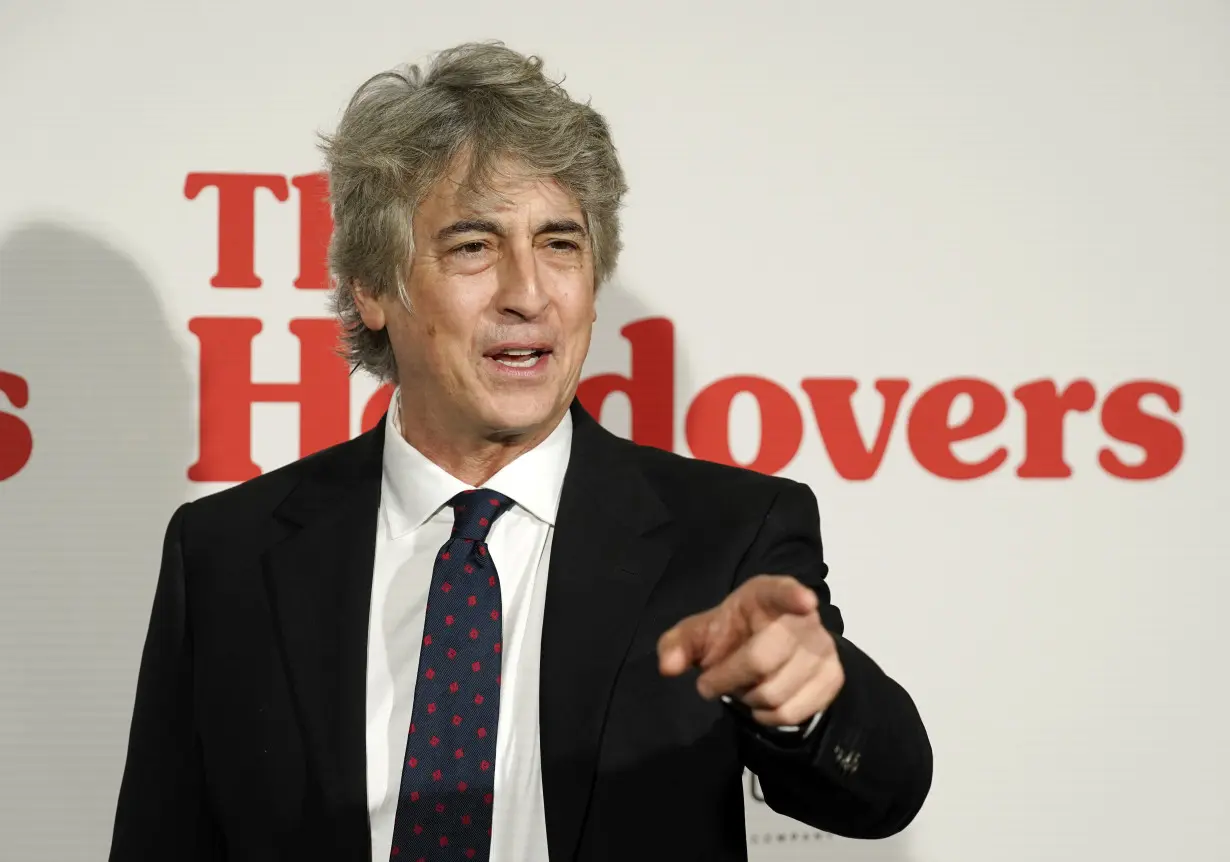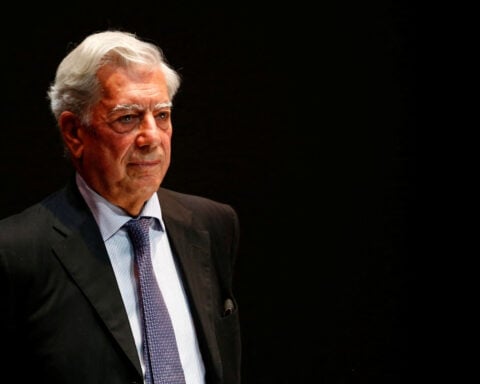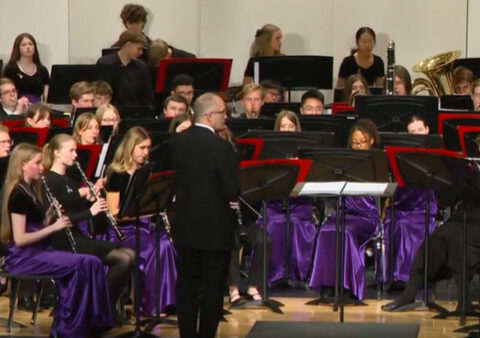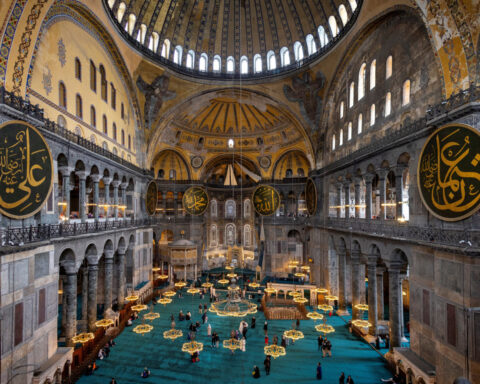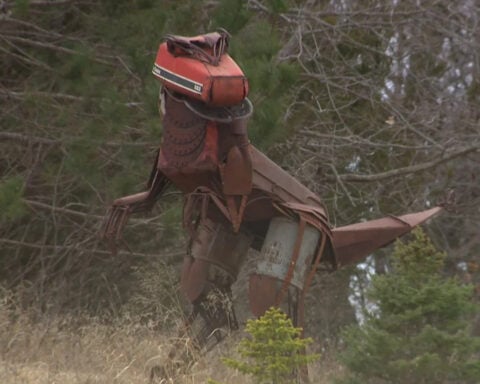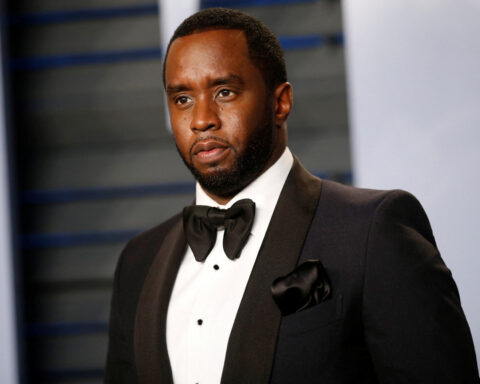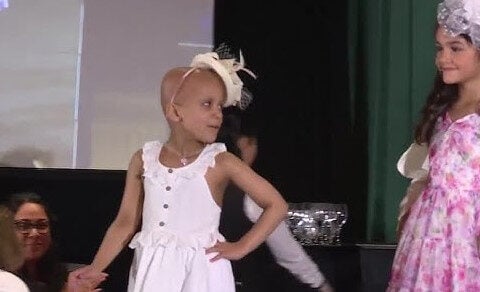NEW YORK (AP) — There are rituals to an Alexander Payne movie. In post-production, he and his longtime editor, Kevin Tent, will gather collaborators for Tie Day Tuesday (women can wear a tie or pearls) and Friday night martinis, during which Payne pulls out his 16mm projector to play old reels he's collected on eBay.
“I kind of overbought,” Payne says, smiling. “If you don’t have the right storage facility, you start getting vinegar syndrome. I had a beautiful print of 'The Breaking Point' — it’s one of my favorite films — and within a year it got vinegar syndrome and I had to throw it out.”
A deep affection for cinema tends to run alongside the moviemaking. Payne's latest, the acclaimed “The Holdovers,” started, years ago, with an old film. The 62-year-old, Omaha, Nebraska-based director caught a restoration of the 1935 French comedy “Merlusse." The plot's basic framework — a much-disliked teacher stays over Christmas break with a handful of kids with nowhere to go home to — struck him as a good basis for a movie.
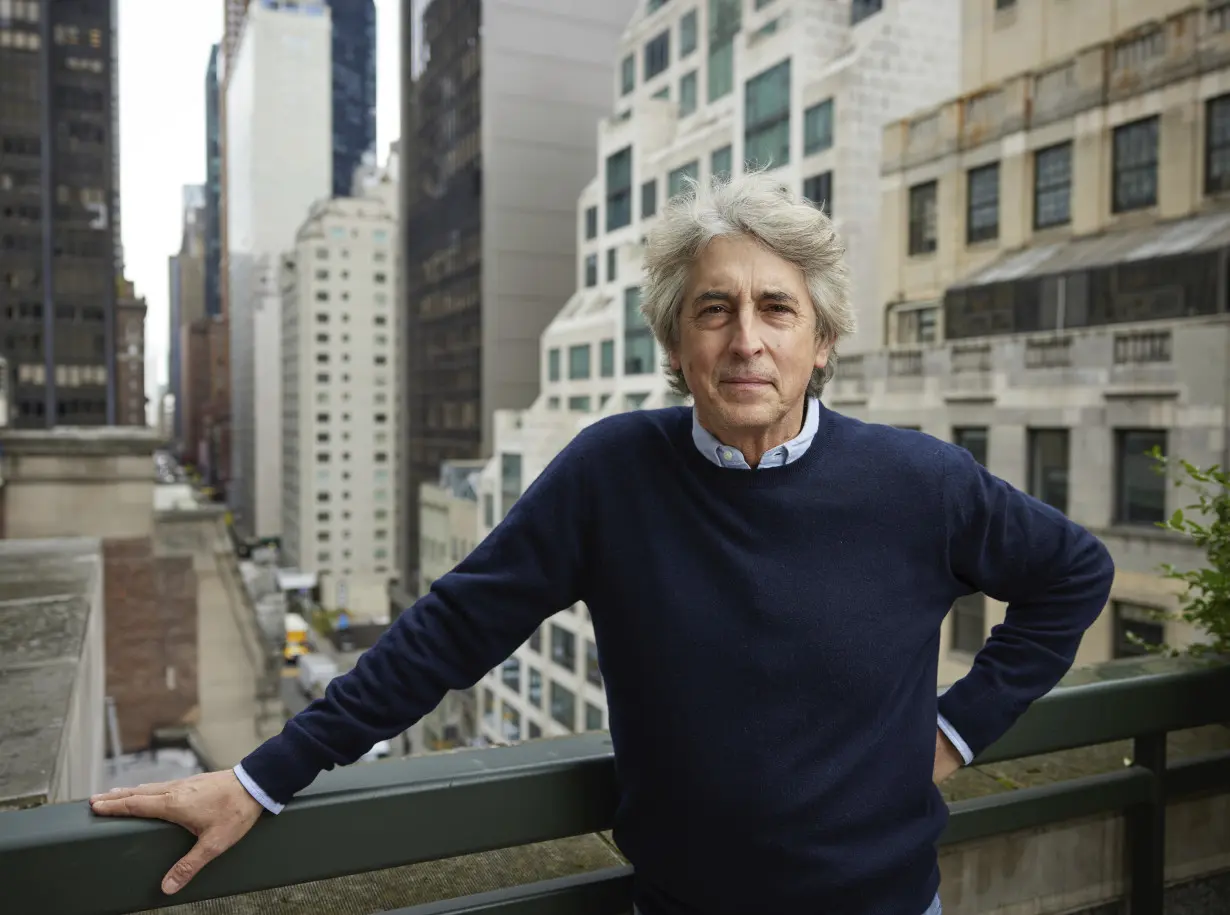
“The Holdovers,” which expands theatrically Friday, stars Paul Giamatti as a curmudgeonly classics teacher in a similar situation at a New England prep school in 1970. The film, penned by David Hemingson, pares away some of the comic conceit to focus on three disparate characters brought together: Paul Hunham (Giamatti), a smart, less well-off student named Angus Tully (Dominic Sessa) and grieving cafeteria manager Mary Lamb (Da’Vine Joy Randolph).
“The Holdovers” is Payne's attempt to make not just a ‘70-set film but an actual ’70s film, styled after some of the movies he grew up with. Older films have an influence, too. “The Holdovers” is, like Leo McCarey's luminous 1937 film “Make Way for Tomorrow” — a film beloved by Payne — a tender drama made with the humanistic touch of a filmmaker most at home in comedy.
On a recent fall day in Manhattan, Payne met a reporter to talk about some of the movies that inspired “The Holdovers” and that formed him as a filmmaker — a conversation that, as in the midst of promoting his expected Oscar contender, he welcomed.
“I like talking about other people’s movies more than my own,” Payne shrugged.
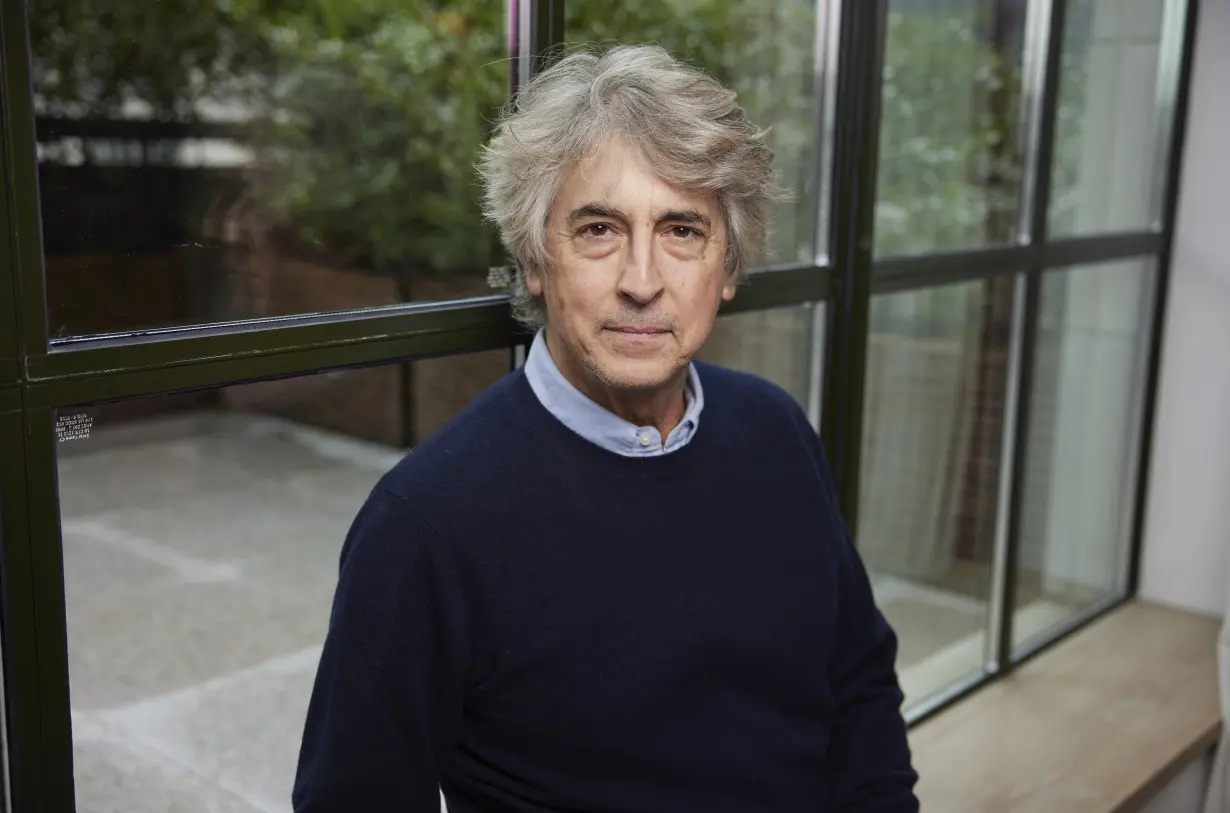
___
AP: Did you screen any films for your cast or crew before shooting “The Holdovers”?
PAYNE: In the Somerville Theatre in Boston they were kind enough to let me screen six or seven prints of films – '70s movies – for the cinematographer, the production designer, the costume designer and also for Dominic because he hadn’t really seen those movies and I wanted him to get a sense of the movie he was about to be in. I ran “The Graduate,”“The Landlord,”“Harold and Maude,”“The Last Detail,”“Klute,”“Paper Moon” and maybe “All the President’s Men.” We weren’t trying to consciously emulate the look and feel of any single one of those films but we all wanted to splash around in the films of our contemporaries, had we been making a movie then.
AP: How did you first encounter those films?
PAYNE: As a kid. “Little Big Man” is in the movie. I saw it probably four times when I was 9 years old. It was at the theater down the street. I could walk to it. I loved that movie. Still do.
AP: You seem to be especially channeling Hal Ashby in “The Holdovers.” What did he mean to you?
PAYNE: I saw “Harold and Maude” when it first came out. I was 10 or 11. I had a funny relationship with “Harold and Maude.” I loved it when it came out. Later when I was a teenager, I thought it was too cornball. Later I saw it again and liked it again. “The Last Detail” was too dirty. No one would take me to see that. My birthday parties, we’d go see “Chinatown” or “One Flew Over the Cuckoo’s Nest.” I’m a big film buff, I’ve seen a lot. But that’s the period when I was a teenager and a sense of taste was being imprinted on me. And what I was told was a commercial American feature film. Now they’re considered art films or whatever. “The last golden age.” Well, you never know when you’re living in a golden age.
AP: Were you thinking then about becoming a filmmaker?
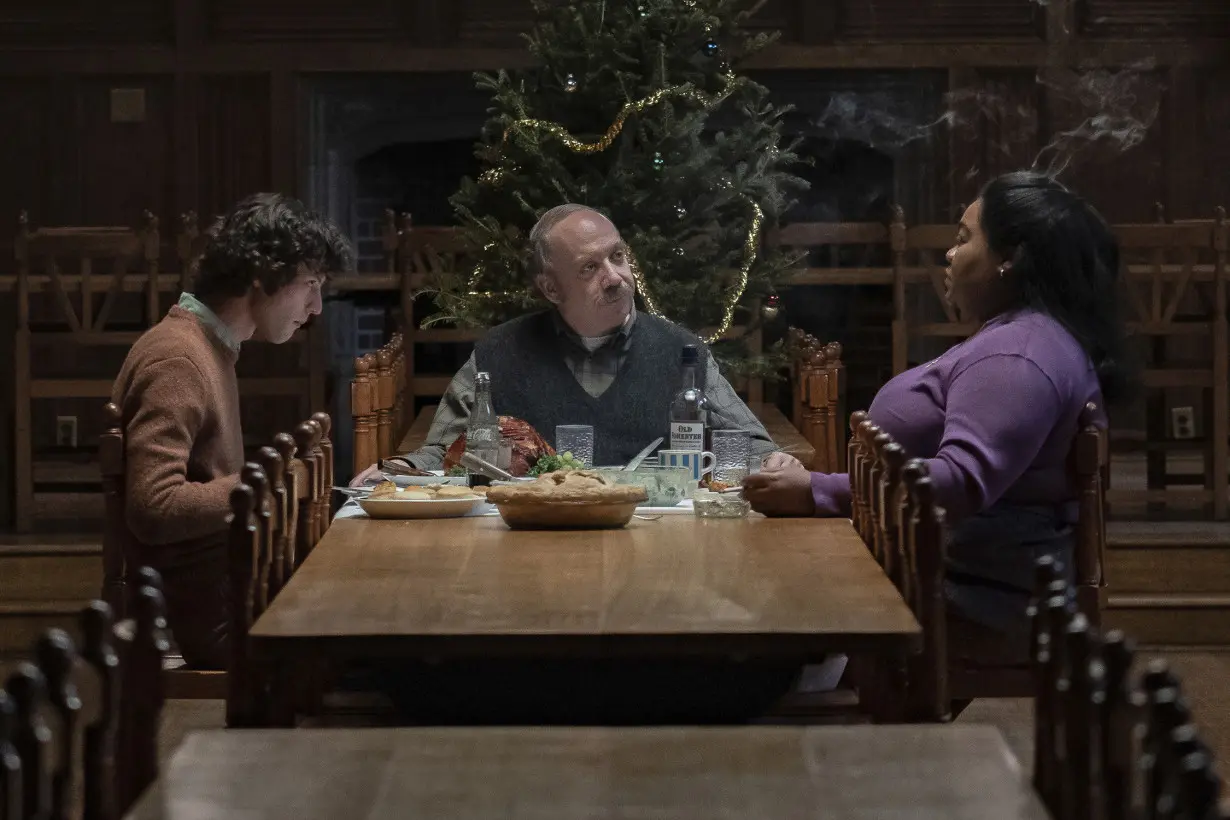
PAYNE: The first thing I ever wanted to be in my life, like under 10, was a projectionist. I had a couple projectors and I loved showing movies. In high school, I kind of wanted to be a journalist. But there was always that distant dream of not being a filmmaker but just going to film school. My parents were hammering me to go to law school. I was a senior at Stanford, I did take the LSAT but that’s as far as I went. I applied to five film schools and Columbia School of Journalism. When I was a junior in college at Stanford, I was seeing a bunch of movies. When I saw “Seven Samurai,” restored version, at the Castro Theatre in San Francisco in the spring of 1983, that’s when I thought: I absolutely have to apply to film school. The line I told myself and I’ve repeated it since is: I will never climb a mountain that high but I want to be on that mountain.
AP: Were there any other foundational filmgoing experiences for you?
PAYNE: Previous to that the two touchstone movies for me were probably “Modern Times,” which I first saw when I was five and have since seen it a hundred times. And earlier in college I had seen Bunuel’s “Virdiana.” I was studying in Spain at the time where it had been banned under Franco. This was 1981, Franco died in 1975. So I was still in that period where films that had been banned under Franco were finally trickling into release in Spain. I was in Spain the first time they screened “La Dolce Vita.” And “Virdiana,” I just couldn’t believe a movie could be that ferocious.
AP: You’ve said before that, with many exceptions, you gravitate to movies that have at least some humor to them.
PAYNE: Oh yeah. You gotta have a joke in a movie. Even Antonioni has humor to him. Even Kurosawa. You gotta have humor. It’s unfair of me to say but I say it. I’ll walk out of a movie and someone will say, “How was it?” I’ll say, “It was pretty good, but no jokes.”
AP: Were there filmmakers that you got to know after “Citizen Ruth” or “Election”?
PAYNE: Mike Nichols and Francis Coppola both reached out to me after “Election” and said, “Hey kid, liked your movie.” I immediately said, “Can I come meet you?” And then we developed some friendship. Lifechanging. I met ("Five Easy Pieces" director) Bob Rafelson many times. He and I corresponded shortly before he passed away. Milos Foreman I met. Jim Taylor, my co-writer, used to be Ivan Passer’s assistant. Milos and Ivan were writing partners who Jim and I saw ourselves mirrored in a little bit. We so loved “Fireman’s Ball.”
AP: You were seen as part of a generation of American filmmakers, along with directors like Wes Anderson and Paul Thomas Anderson, who were compared to that '70s generation. Did it feel like you were part of something?
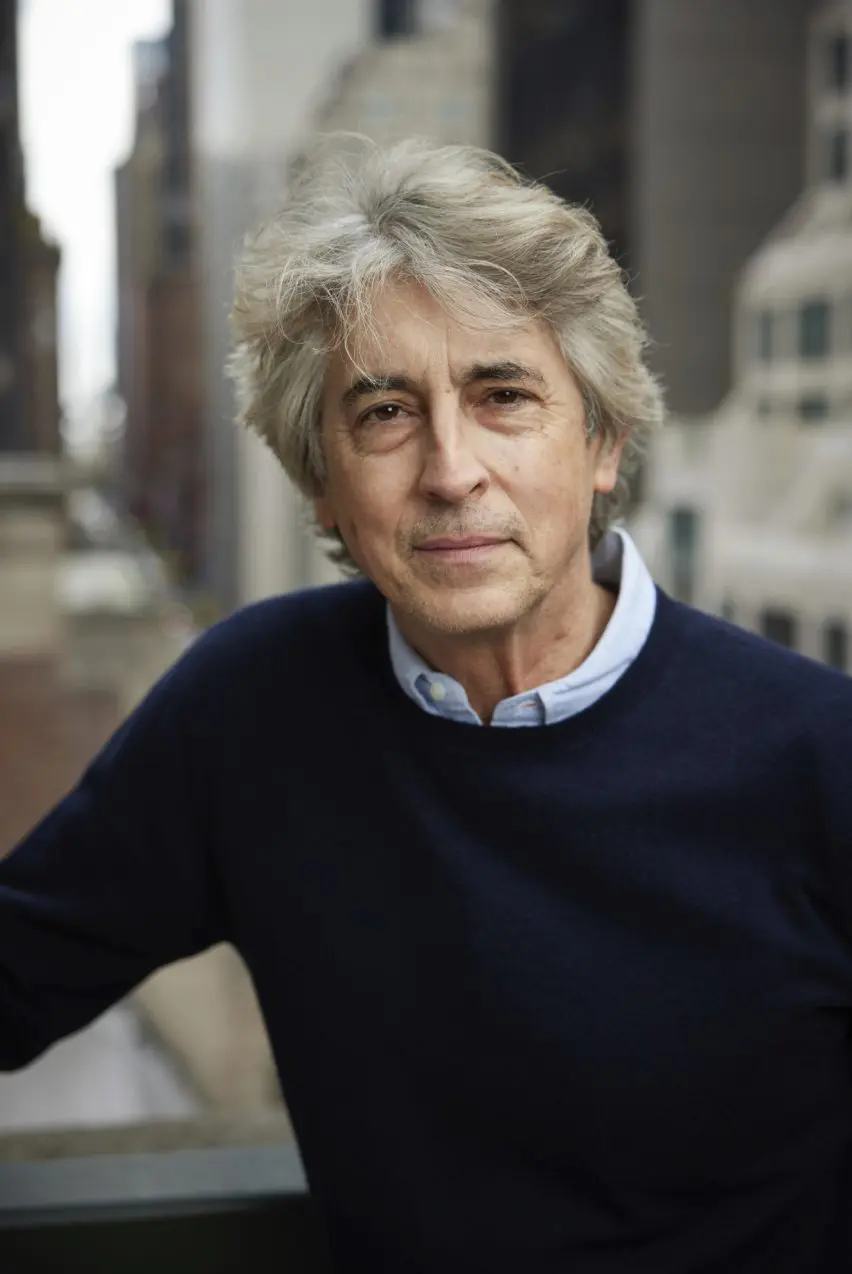
PAYNE: I’m part of that group — what did they call it, ’90s, indie — and I guess either we felt it or it was imposed on us. Most of us trained in film school like those ’70s guys. It was written about a lot in 1999. “Rushmore,” “Malkovich,” “Fight Club,” “Boys Don’t Cry,” “Election,” “Virgin Suicides.” “Boogie Nights.” They were talking about that like the indie 1939. We were hanging out a little bit, not a whole lot. I remember MOMA was doing tributes to some young directors. David O. Russell got the first one and we all went to that party. We went out afterwards and I still have pictures from that somewhere. The Coens, Spike Lee, Jim Jarmusch — they were slightly before us. And of course Steven Soderbergh is arcing over everything. He leads the way. Mike Nichols used to say, “Soderbergh leads the way.”
___
Follow AP Film Writer Jake Coyle at: http://twitter.com/jakecoyleAP

 Trump has begun another trade war. Here's a timeline of how we got here
Trump has begun another trade war. Here's a timeline of how we got here
 Canada's leader laments lost friendship with US in town that sheltered stranded Americans after 9/11
Canada's leader laments lost friendship with US in town that sheltered stranded Americans after 9/11
 Chinese EV giant BYD's fourth-quarter profit leaps 73%
Chinese EV giant BYD's fourth-quarter profit leaps 73%
 You're an American in another land? Prepare to talk about the why and how of Trump 2.0
You're an American in another land? Prepare to talk about the why and how of Trump 2.0
 Chalk talk: Star power, top teams and No. 5 seeds headline the women's March Madness Sweet 16
Chalk talk: Star power, top teams and No. 5 seeds headline the women's March Madness Sweet 16
 Purdue returns to Sweet 16 with 76-62 win over McNeese in March Madness
Purdue returns to Sweet 16 with 76-62 win over McNeese in March Madness
